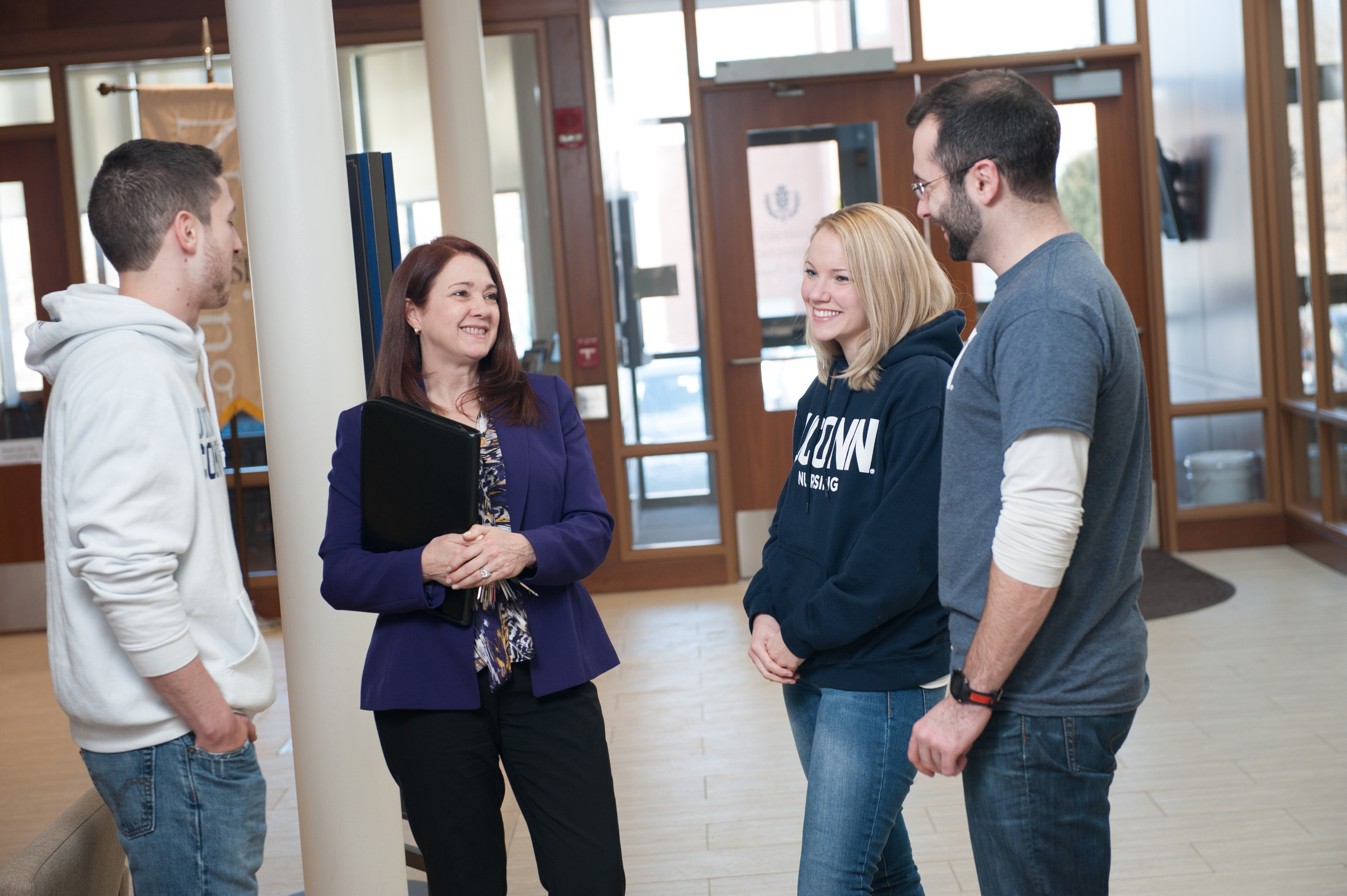“From tiny acorns mighty oaks do grow,” according to the popular proverb, and a decade after its inception CEIN/BS (originally called Master’s Entry into Nursing or MEIN) has grown from one site in Storrs to four, including Waterbury, Stamford, and Avery Point.
Designed as an eleven-month intensive didactic and clinical program for students who had already earned bachelor’s degrees and who had met the science pre-requisites, MEIN admitted many older adults who were undergoing career transitions. The program also facilitated entry into UConn Nursing’s master’s programs. Upon completion of the program students qualified to sit for the NCLEX exam.
Several years into the program, however, the School of Nursing’s administration discovered that some healthcare institutions required bachelor’s degrees in nursing. Fortunately, strategic thinking with the UConn administration resulted in the awarding of a Bachelor of Science in Nursing upon completion of the program. CEIN/BS was reborn.
The demographics of students today have also changed. As CEIN/BS Director Dr. Nancy Manister observed, “More and more we are attracting students who are younger, and some are coming right from their undergraduate programs. Our current class ranges in age from 21 to over 55 years, with more than half in their mid-twenties. A quarter of our students are male, reflecting a nationwide trend of males entering the nursing workforce.”
Those who are in the midst of career transitions bring special gifts to the program. “For students coming right from a baccalaureate program, some changed from a health related career trajectory and others decided too late in their college career to change their major to nursing,” Manister explained.
“Students with work experience bring a tremendous richness and maturity to the program and are able to share these with classmates and apply their world view when they frame patient case studies. Our program has several students with military backgrounds, and some have served in the Peace Corps.”
Because the program is very demanding, admission is highly competitive. The average GPA of students is 3.4 for undergraduate classes, and 3.6 for program prerequisites.
CEIN/BS graduates likewise find themselves very competitive on the job market. “We have seen an increase in the number of CEIN/BS grads gain employment by the time of graduation,” Manister explained. “By March, well over half of the December 2015 graduates had full-time positions already. Some had two and three job offers. Employers value the high standards of our program and recognize our students as being very professional.”
Students at all four locations have the same quality learning experiences. “Each campus now has two full-time faculty and a simulation laboratory for high and low fidelity simulation experiences,” Manister said. “Students spend time at the beginning of each course developing related skills in a controlled environment. Our students have a higher percentage of clinical experiences than some of our competitors, and we feel that this makes our students stronger.”



